Successful Diaspora Returnee Stories: Maria Mustapic, Brasserie on 7, Split
The 2nd International Conference on Diaspora Tourism opens in Split on May 17, 2019. In the build-up to the conference, TCN meets some of the returning diaspora who have made a success of life in Croatia. We start with one of our favourite stories, Maria Mustapic in Split.
With so many young people emigrating from Croatia due to lack of opportunity, there are a number of the Croatian diaspora looking to move in the opposite direction and return to the Homeland. Few actually make the move, for a variety of reasons: the uncertainty of what awaits, lack of much available information of the realities of the process and experiences, and a reluctance to move from successful Western economies to the struggling Croatian economy.
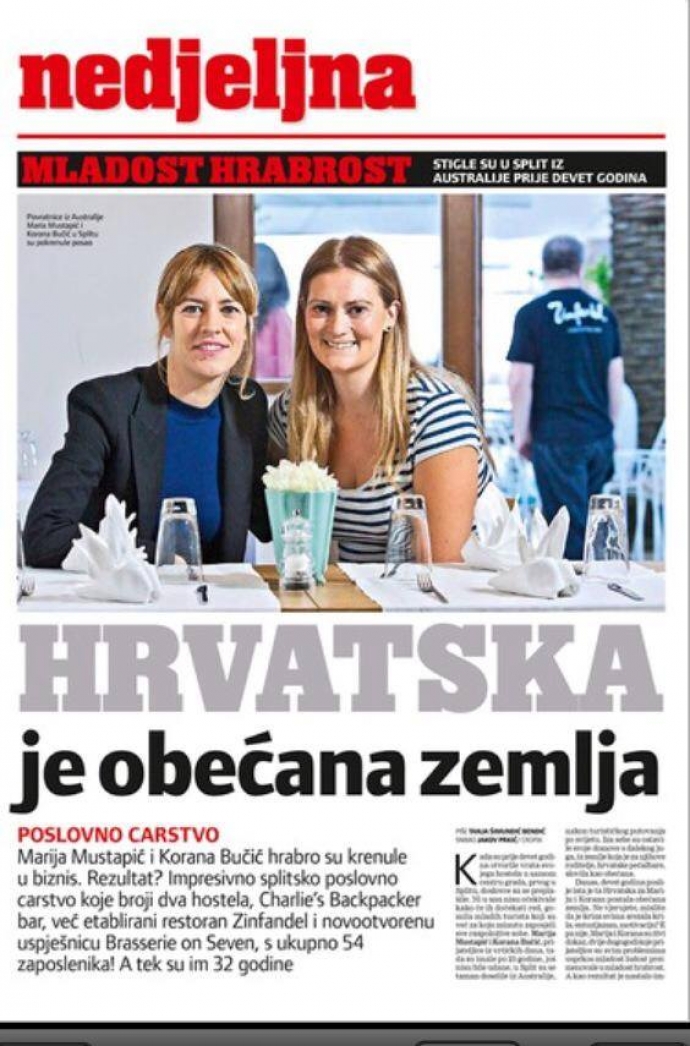
But there are many who have made the leap, some with considerable success. One of the themes of next week's 2nd International Conference of Diaspora Tourism in Split will be a focus on those success stories. By sharing experiences and bringing concrete examples of success, the conference will showcase what is possible, hopefully inspiring others to try their luck.
Croatia desperately needs to engage with its diaspora, and there are signs that this is happening. A new generation of Croatian entrepreneur and business-minded diaspora network are connecting as never before, forging links directly, with minimal contact with the State.
In order to support these positive waves, TCN will be conducting a few interviews over the next couple of weeks with speakers at the conference, hearing their stories and experiences, lessons learned and advice for those who are thinking of returning.
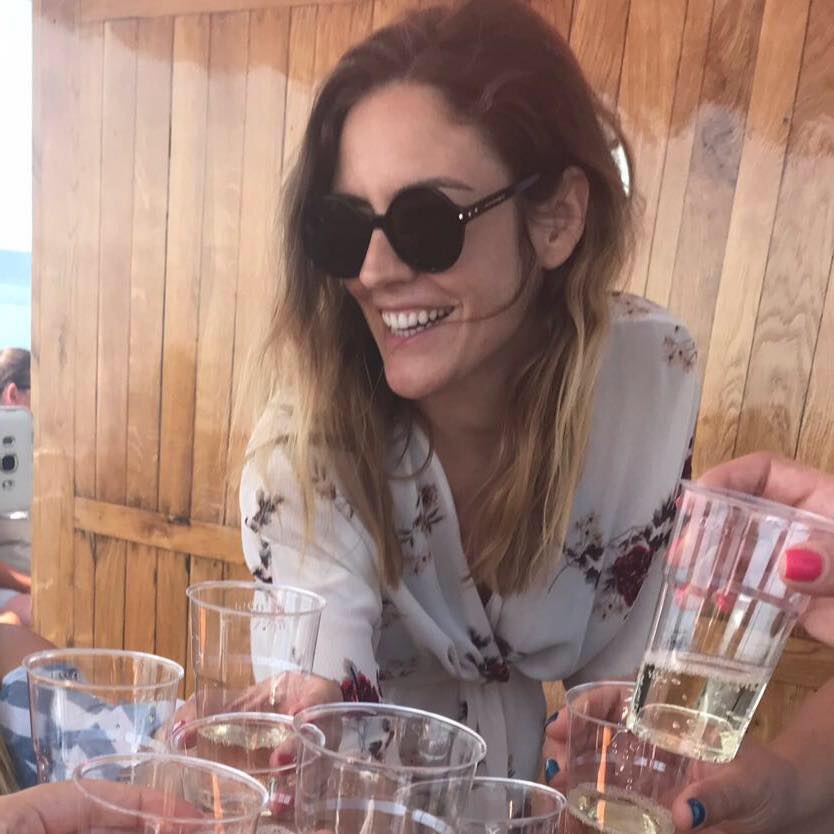
We begin with one half of perhaps my favourite success story of all. Maria Mastupic and her childhood friend, Korana Bucic, moved from Sydney to Split about the same time as I did back in 2004. Although it was years before we met, their reputation preceded them, and they quickly became the legendary Australian girls who opened a hostel in Split, and then just kept on going. They did a GREAT interview with TCN a few years ago on their journey - well worth a read - and Maria was kind enough to agree to an interview ahead of her speaking at next week's conference (full programme details here).
1. Born in Australia, returned to Croatia, something that many diaspora dream of doing. Tell us briefly about your journey.
The journey has been a rollercoaster, so much growth, a huge learning curve, and a lot of patience and perseverance. In 2004 we did a Euro trip with a group of friends and realised the lack of hostel accommodation so thought, this something we could do. We went back to Australia, did our research, a business plan and figured out a way to make it happen. We arrived in 2006. Once we were established we realised the opportunity for so many more business ventures and one thing led to the next. In 2008 we opened a little health orientated fast food called ‘Fab Food’, but that was way ahead of its time. So we closed that after 2 years and in 2010 opened the second hostel along with a backpacker bar ‘Charlie’s’. By 2013, having lived in Split now for 7years we were fed up with ‘lack of dining scene’ and repetitious menus and decided to try our luck in the gastronomy business. That resulted in the creation of Zinfandel food and wine bar and Brasserie on 7 in 2014. Overall, the journey has been great and thankfully well worth it.
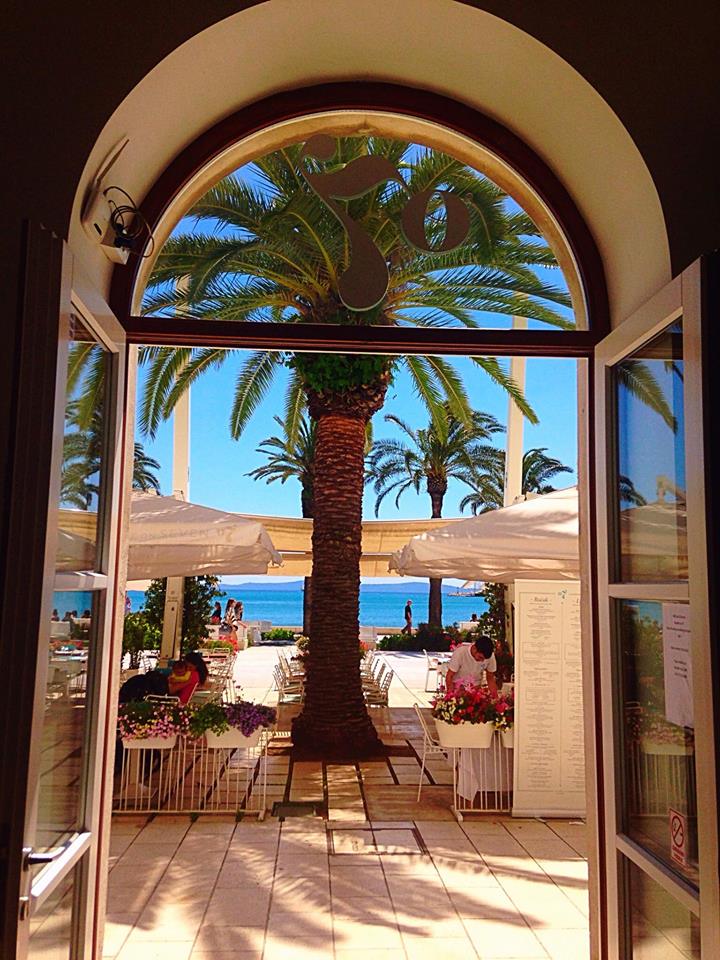
(Brasserie on 7, the best dining address on the Split Riva)
2. Looking back, what were your hopes, expectations and fears about moving to Croatia?
The upside was we were 22 when we moved to Split, but nevertheless, we had a plan and were determined to achieve it. However we didn't have much expectation, nor did we have ANY idea of what we were getting ourselves into. At 22 it was about seizing the day. Worst case scenario we move back to Sydney, split the debt and pay it back. We kept things simple, relied on each other and didn't give up. We were young and weren't so fussed or stressed about the bigger picture or financial gain in the beginning. It was an adventure. The fears were, leaving our comfort zone, having no friends, not being familiar with barely anything, the language barrier and I guess failing certainly would have been a fear as well.
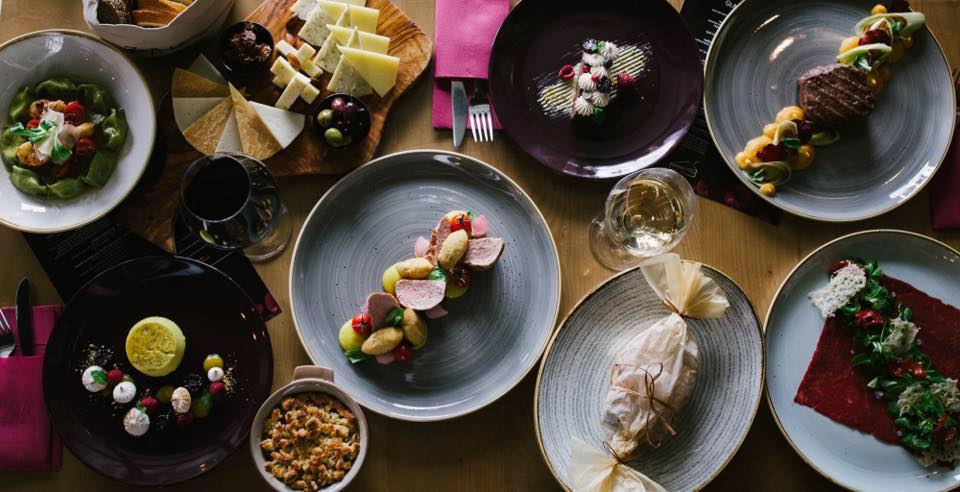
3. How supportive was your Croatian community back home at the time?
We didn't tell a lot of people, we didn't know if it was going to be permanent, or what would come of it. Our immediate family and friends obviously knew, they were extremely supportive, very surprised and thought it was gutsy, but supported us 100%! A few people made comments that we would be back before we knew it but I don't think anyone took it too seriously in the beginning.

(Zinfandel Food and Wine Bar was ground-breaking for Split when it opened in early 2013)
4. What were the main differences in what you expected to find in Croatia and the reality of living in Croatia?
The main differences were, the high’s and lows of seasonal changes, the lack of empathy, openness and assistance from the government sector. And the installment of fear that the locals were paralysed by. The pessimism and negativity is part of the culture, I can also now more so understand why. But thankfully as I mentioned being 22, the expectation was limited. For us, it was riding out the European summer dream and turning it into our lives and the hostel was the perfect way to achieve that. We were semi-aware of the stagnation of the country and the economic situation. But on a micro scale, for us, business was booming and were having a lot of fun doing it.
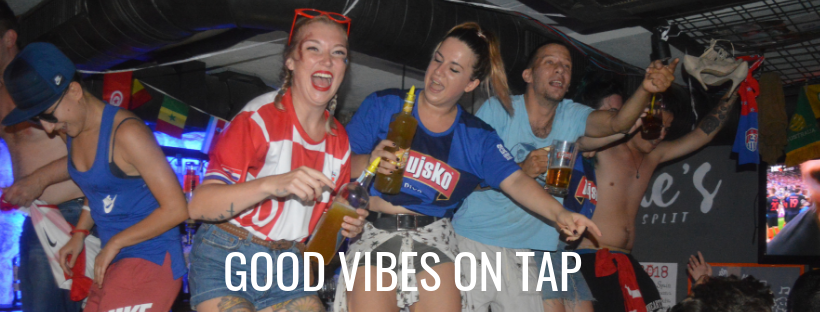
(Charlie's Bar has become an institution in Diocletian's Palace)
4. Many diaspora think of returning but few do. In truth, there is little information out there about real-life stories and help/info about the process. What advice do you have for those who are thinking about making the move?
Be prepared with daily frustrations, solitude, things you take for granted, its a great lifestyle for pensioners and young families who want a slower pace, as long as the family can financially survive. Personally, I think you need to have a plan, as many doors won't open up to you just like that. If you are moving to Zagreb then I'm assuming you can find a professional job with decent pay and create a stable new life. And maybe even change jobs once in a while. But in Dalmatia, the professional workforce is very limited. You also need to be patient, it took me a very long time to understand how everything works here. Persistence and perseverance.
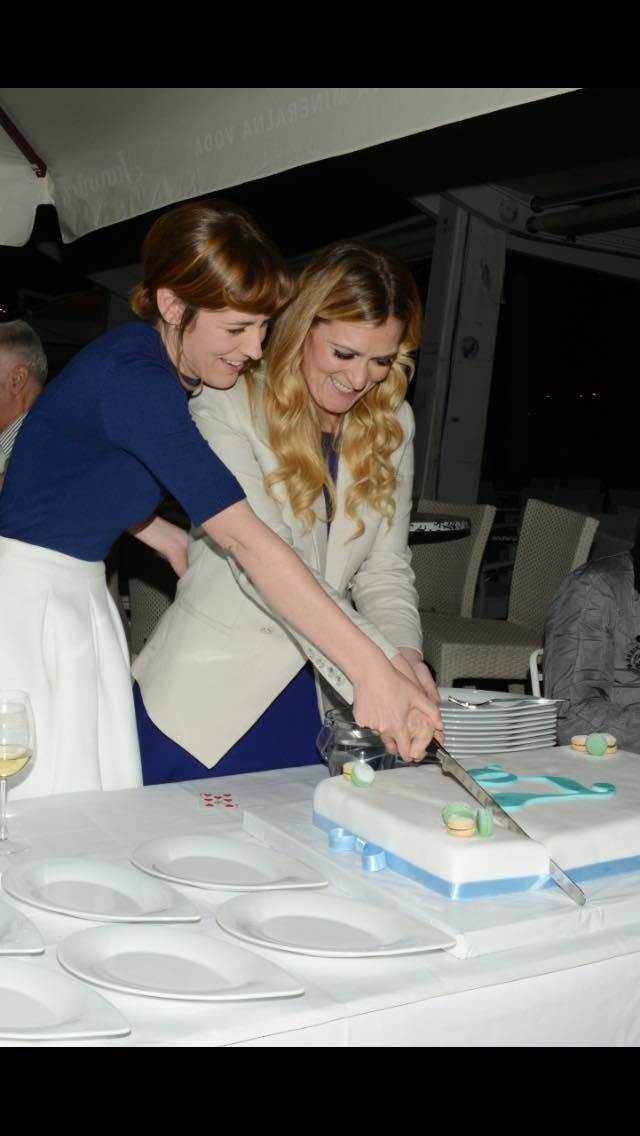
(The opening night of Brasserie on 7 in 2014)
5. How were you perceived in Split as foreigners/diaspora moving back - was the welcome warm?
Everyone was confused as to why we came and didn't understand our business model. Most government officials and offices were a nightmare to deal with, but the locals were quite warming and helpful. I think they were Genuinely concerned for us, especially as we were without our immediate family and feared our failure.
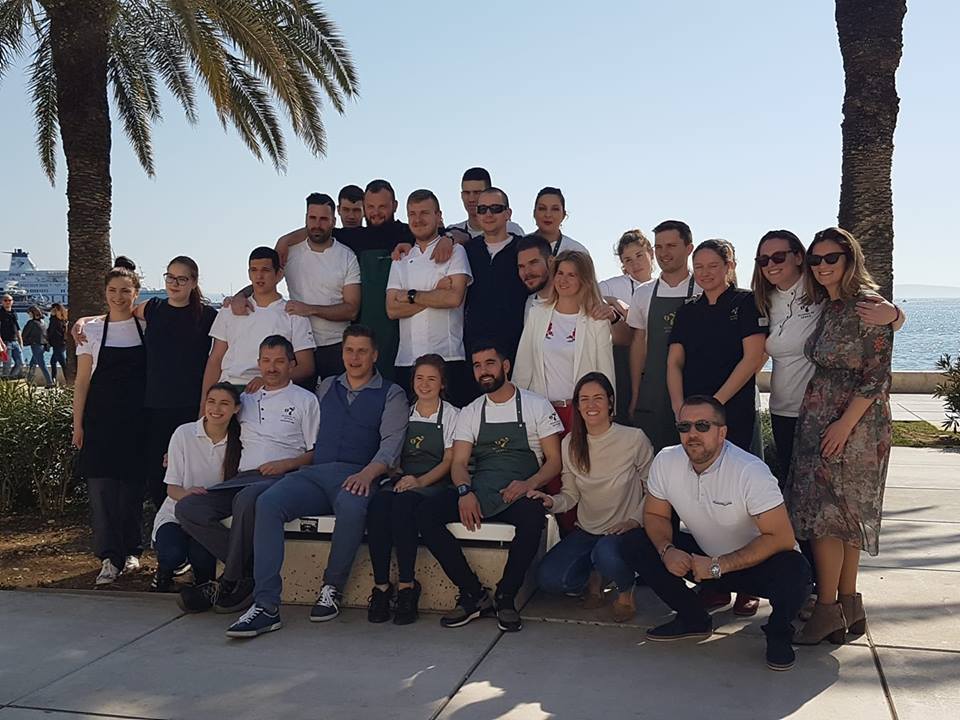
(The B7 team celebrate 5 years in 2019)
6. Through a lot of hard work, you two young ladies have been very successful, while many foreigners have given up and left Croatia. What are the keys to success in doing business in Croatia in your opinion?
Unfortunately, I believe the Golden rule is that your business is relying on and selling to a foreign market! And it is about finding the right team. Finding people that believe in the project and the company.
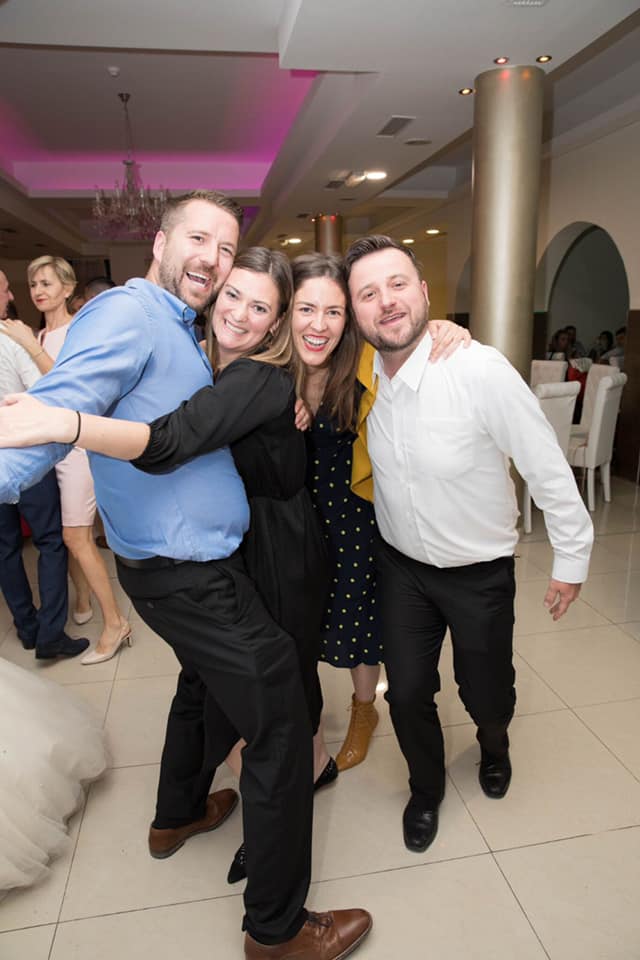
(They even managed to pick up a couple of Croatian husbands along the way)
7. What is the diaspora community like in Split and how integrated is it with locals?
It is basically a large expat community and then within that group are those with Croatian roots. But there is no diaspora group per se, as far as I am aware. We ourselves are extremely integrated with locals as they make up 99% of our company, and from what I can see there are strong ties to the community amongst others as well.
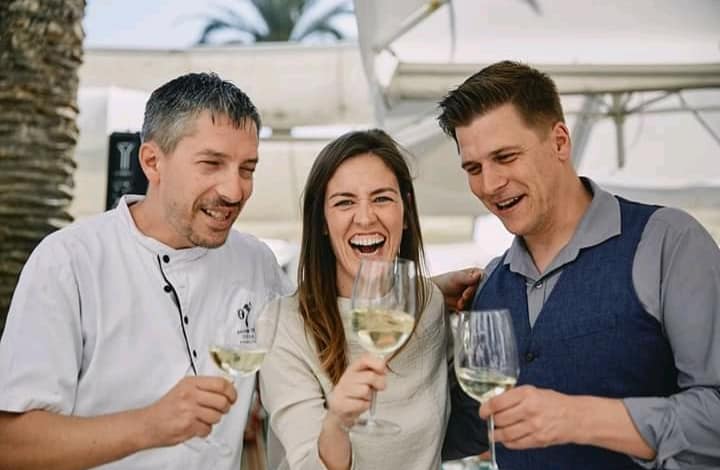
(Maria with some of the stars of the B7 team)
8. And finally, a word on this conference. What are you hoping to get out of it?
Firstly, I and Korana are relatively new mums, so our social calendar is almost obsolete. We are looking forward to meeting some new faces and maybe hopefully getting insight into different perspectives from others.
Visit the B7 website to learn more about this great dining experience, which started 15 years ago with a couple of Aussie backpackers wondering if they could make it in Croatia.
For more details on the conference, here is the full programme in English and Croatian.

